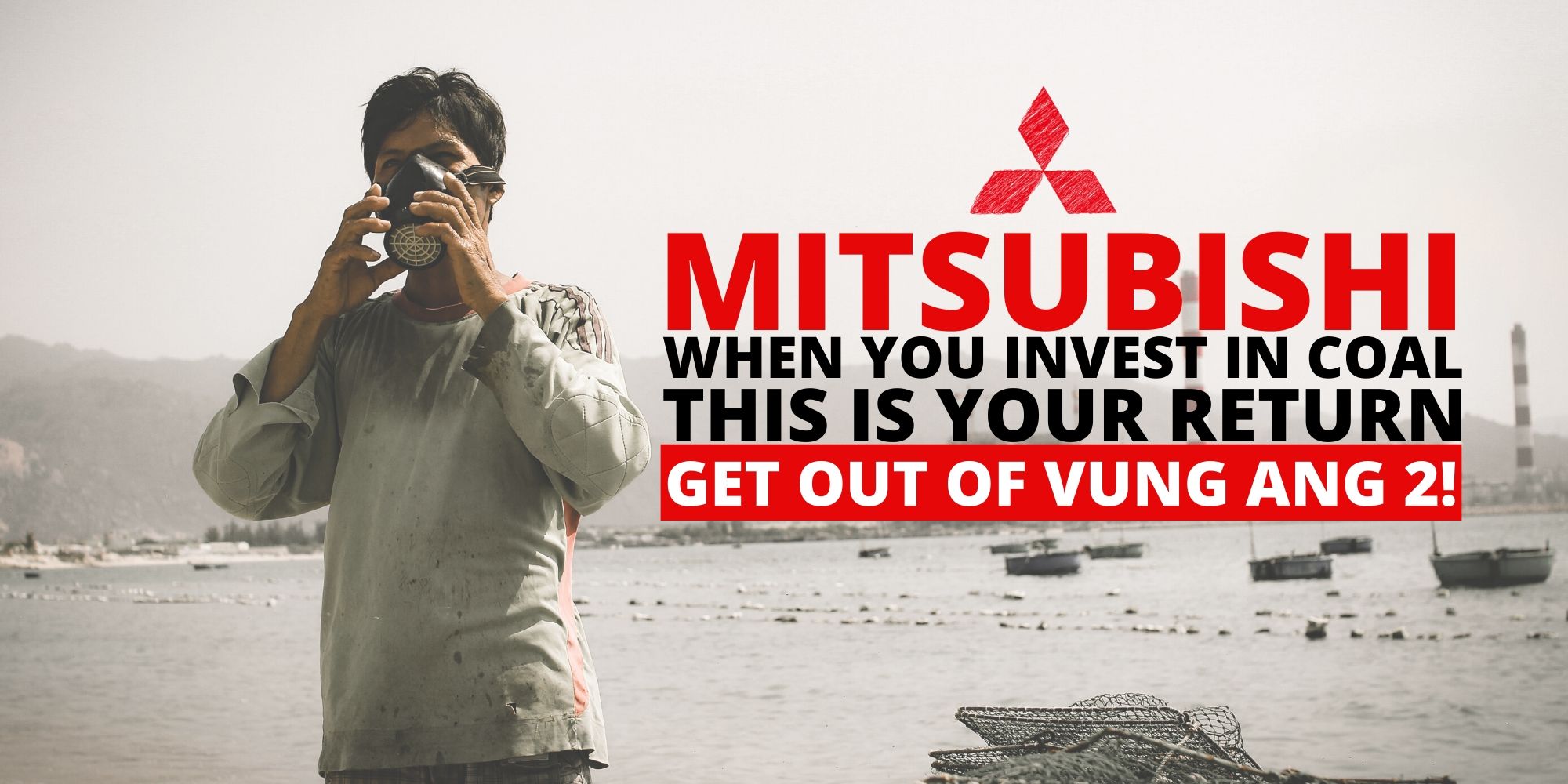[Joint Statement]
“Negative profitability” found for planned Vung Ang 2 coal-fired power plant in Vietnam by Korean government think tank

Joint Statement
“Negative profitability” found for planned Vung Ang 2 coal-fired power plant in Vietnam by Korean government think tank: Japanese corporations and banks may risk lawsuits if they move ahead with project despite projected losses
Japan Center for a Sustainable Environment and Society (JACSES)
Friends of the Earth Japan
Mekong Watch
Kiko Network
350.org Japan
A pre-feasibility study for the Vung Ang 2 coal-fired power plant project in Vietnam, which Japanese governmental agencies and private companies have been working jointly to promote, found that the project would lose 158 million dollars (approx. 17 billion yen)1. With a profitability index of 0.96, the project was below a crucial threshold to go ahead with investment (must be above 1 to be profitable). In response to this news, we environmental NGOs once again call upon the Japanese parties to terminate their involvement in the project.
Current investors in Vung Ang 2 include Mitsubishi Corporation (40%), Chugoku Electric Power Co. (20%), and CLP from Hong Kong (40%), but at the end of last year CLP stated that it would withdraw from the project due its newly adopted decarbonization policy. Korea Electric Power Corp. (KEPCO) is considering acquiring CLP’s stake, as proposed by Mitsubishi Corporation.
In Korea, any investment project above 50 billion won by a public institution is required to undergo a pre-feasibility study to determine whether or not the project should go ahead. For the Vung Ang 2 project, in which KEPCO (a public body) is considering participating, the study was also conducted by the Korea Development Institute (KDI), a governmental think tank.
The review found that for the period of KEPCO’s expected involvement (2020 to 2048)2 the net present value of revenues and expenditures would result in a loss of 79 million dollars (95.8 billion won) for KEPCO, or about 8.6 billion Japanese yen 3. KDI produced these results in March, but a portion of the data was released publicly by a Korean member of the National Assembly on June 11th.
KDI reportedly stated that “KEPCO has not provided detailed breakdowns of project costs and has not yet conducted due diligence on the entire project,”4 which indicates that additional costs could be incurred.
Meanwhile, the costs of renewable energy are dropping steadily, while coal-fired power plants are expected to become less profitable. If anything, the negative profitability of this project is likely to grow in the future, not shrink.
Mitsubishi Corporation and Chugoku Electric Power Co. are expected to invest in this project, and financing is anticipated from the MUFG Bank, Mizuho Bank, Sumitomo Mitsui Banking Corporation, and Sumitomo Mitsui Trust Bank, but if this project goes ahead despite analysis showing negative profitability, corporate management could be facing shareholder class action lawsuits in the future.
As financial institutions of the Japanese government, the Japan Bank for International Cooperation (JBIC) and Nippon Export and Investment Insurance (NEXI) are currently considering providing financing and insurance, but projects that are expected to lose money should not be receiving public support. Vietnam is a country with enormous renewable energy potential, including solar, onshore and offshore wind power, and many renewable energy projects are being implemented or planned in the area around the planned project site. Japanese public and private sector players alike should withdraw from Vung Ang 2 and support decarbonization in Vietnam.
Footnotes
- 1. The Korea Times, June 11, 2020. KEPCO Vietnam investment ‘feasible’ despite expected losses
- 2. See footnote 1.
- 3. asiatoday, June 11, 2020. “Rep. Kim Sung-whan: KEPCO should withdraw from unprofitable overseas coal-fired power plant project” (in Korean) Kyunghyang Shinmun, June 11, 2020.
- 4. KDI: “KEPCO coal-fired power plant project in Vietnam expected to have negative earnings” (in Korean)